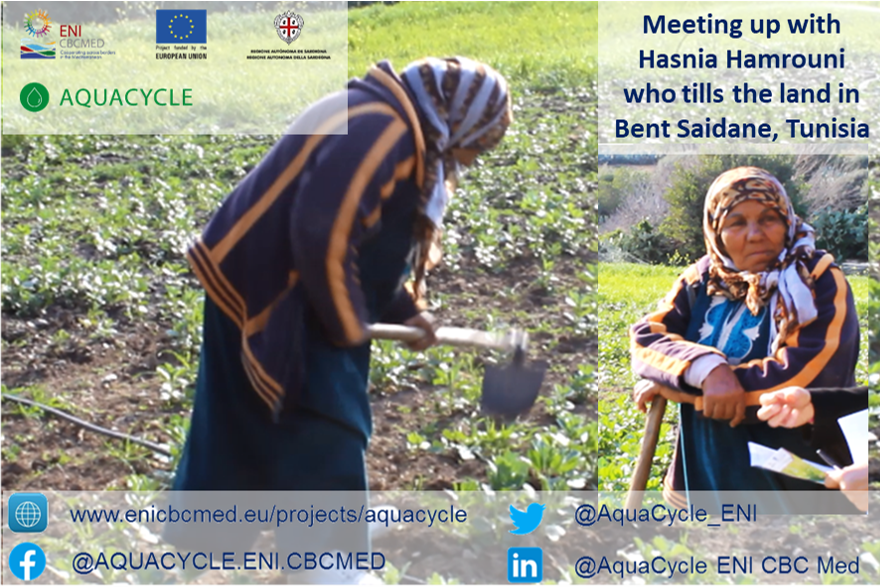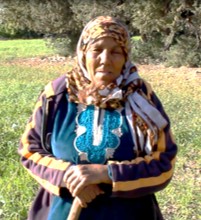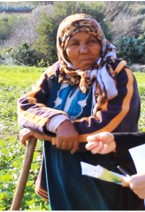AQUACYCLE meets up with Hasnia Hamrouni, a farmer who tills the land in Bent Saidane, Tunisia

Khitem Mensi, Sonia Jbeli and Anis Ghattassi from the Tunis International Center for Environmental Technologies (CITET) team in the AQUACYCLE Partnership met up with Hasnia Hamrouni, a woman farmer who tills the land in the Bent Saidane area of Tunisia.
Their interview with Hasnia, which was recorded also on video, took place on 24 February 2022.
To begin with, they wished to find out more about her dependence on fresh water resources in this locality of Tunisia, and how this dependence may have been affected by the impact of climate change. In Hasnia’s view:
Previously, there was water thanks to the availability of rainwater but now it is reduced under the effect of climate change. In recent years we have noticed that the soil has become dry, the level of the water table has decreased: sometimes we can’t irrigate the entire field in the face of the low flow of water.

Khitem Mensi also took with her AQUACYCLE’s promotional leaflet, to explain about the project’s low-cost eco-innovative wastewater system (APOC) so as to invite the farmer’s opinion about using treated domestic wastewater to satisfy her water requirements and thereby sustain her livelihood as a farmer. In Hasnia’s view:

We are ready to use the water supplied through the AQUACYCLE project if it is of good quality and brings no risk on the level of production and the quality of crops.
Hasnia Hamrouni tills the land in the locality of Bent Saidane which belongs to El Fahs, Governorate of Zaghouan in Tunisia. Her farmland, which covers about 2 hectares, produces beans, peas, potatoes, peppers, tomatoes, onions, olives, and almond. Due to the increasing scarcity of rain, her land is nowadays irrigated only with groundwater drawn from a well. Yet, as Hasnia explains during this interview, also the groundwater level is being impacted by the impact of climate change.










